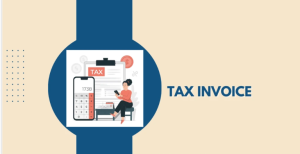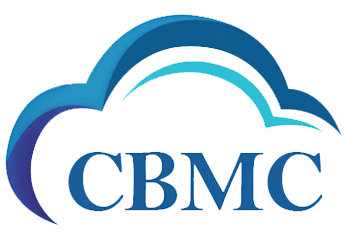
Navigating tax compliance is essential for long-term growth in Pakistan’s dynamic business environment. Although the word “VAT” is widely used throughout the world, Pakistan mainly uses a sales tax system. Common mistakes made by many businesses, particularly Small and Medium Enterprises (SMEs), in their Sales Tax filings can result in needless fines and possible Federal Board of Revenue (FBR) audits.
It’s more crucial than ever to get your sales tax act together as 2025 approaches, given the FBR’s continuous push for digitization and a broader tax base.
Here are the most frequent Sales Tax mistakes businesses in Pakistan make and how to avoid them:
- Incorrect Registration and Category Classification
The Mistake: Many businesses either fail to register for Sales Tax when required, or they misclassify their business activity (e.g., manufacturer, wholesaler, retailer), leading to incorrect tax obligations and exemptions.
How to Avoid:
- Know Your Thresholds: Understand the FBR’s thresholds for mandatory Sales Tax registration based on your turnover and business activity.
- Accurate Business Description: Ensure your business activity is accurately described during registration on the FBR’s IRIS portal. Consult an expert if unsure about your classification.
- Regular Review: Periodically review your registration status and business description, especially if your operations change significantly.

- Inaccurate Sales Tax Invoice Management
The Mistake: Sending or receiving sales tax invoices incorrectly, failing to include necessary information, failing to keep accurate invoice records, or using non-FBR-approved invoicing techniques.
How to Avoid:
- Mandatory Invoice Details: Make sure that every sales tax invoice includes the buyer’s and seller’s NTN/CNIC, the description of the goods or services, the quantity, the value, the sales tax amount, and the total.
- FBR-Approved Software/POS: Use FBR-approved Point of Sale (POS) or invoicing software that integrates directly with the FBR for real-time reporting, if applicable.
- Proper Record Keeping: Maintaining accurate records requires keeping both digital and hard copies of all sales tax invoices sent and received for at least the legally required amount of time, which is usually six years.
- Errors in Input Tax Adjustment
The Mistake: Claiming input tax on non-admissible purchases, incorrect calculation of input tax, or failing to reverse input tax on supplies subsequently declared exempt or non-taxable.
How to Avoid:
- Admissibility Rules: Understand what constitutes an admissible input tax. Generally, input tax can only be claimed on purchases used for making taxable supplies.
- Proper Documentation: Only claim input tax against valid Sales Tax invoices from registered suppliers.
- Timely Reconciliation: Reconcile your input tax claims with your purchase records regularly to catch discrepancies early.
- Proportionate Adjustment: If you make both taxable and exempt supplies, ensure you only claim input tax proportionally on purchases attributable to taxable supplies.

- Non-Compliance with Filing Deadlines
The Mistake: One of the most frequent causes of fines is the late filing of sales tax returns.
How to Avoid:
- Mark Your Calendar: Put a reminder on your calendar to file your sales tax return on the fifteenth of every month, or on other dates that apply to industries or filers.
- Start Early: Avoid waiting until the very last minute. To prevent last-minute rushes and technical issues on the FBR portal, prepare your data and draft your return well in advance.
- Automate Where Possible: To make the preparation process go more quickly, use accounting software that can produce Sales Tax reports.
- Incorrect Calculation of Output Tax and Tax Payable
The Mistake: Miscalculating the Sales Tax payable, applying incorrect tax rates, or failing to account for all taxable supplies.
How to Avoid:
- Up-to-Date Rates: Stay informed about the prevailing Sales Tax rates for your goods or services (standard rate is currently 18%, but specific items may have different rates).
- Comprehensive Reporting: Ensure all taxable supplies, including those to unregistered persons, are accurately reported.
- Double-Check Calculations: Before submitting, meticulously review all calculations. The IRIS portal helps, but human verification is key.
- Ignoring Notifications and Audit Notices from FBR
The Mistake: Sometimes companies ignore FBR notices or don’t reply in the allotted time, which results in ex-parte assessments and more severe penalties.
How to Avoid:
- Regular IRIS Portal Check: Check your IRIS account frequently to see if there are any new notifications or correspondence from the FBR.
- Prompt Response: Provide all necessary documentation along with a prompt response to any FBR notice, inquiry, or audit request.
- Professional Help: Consult a tax consultant or attorney right away if you receive an audit notice or have a complicated question.
Penalties for Non-Compliance
The FBR imposes significant penalties for Sales Tax non-compliance, which can include:
- Fines: For late filing, incorrect declarations, or failure to maintain records.
- Default Surcharge: Charged on delayed payment of Sales Tax.
- Imprisonment: In severe cases of tax evasion or fraud.
- Blocking of NTN/Blacklisting: Which can halt business operations.
Conclusion
Navigating Pakistan’s Sales Tax landscape requires diligence and a proactive approach. By understanding these common pitfalls and implementing robust internal controls, businesses can significantly reduce their risk of errors and penalties. Invest in proper record-keeping, stay updated on FBR regulations, and don’t hesitate to seek professional advice. Proactive tax management isn’t just about compliance; it’s a strategic move for the long-term health and growth of your business in Pakistan.
To know more in detail, visit our official website: https://www.cbmc.pk/
